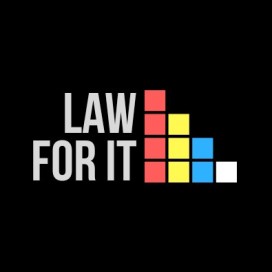Background
Massive Multiplayer Online Role-Playing Games (“MMORPGs”) are virtual worlds in which players act as inhabitants and band together to engage in immersive gameplay.[1] There are MMORPGs which are real-world simulations, and allow players to create an avatar in the game and collect assets such as money, weaponry, clothing, land, or other goods that have “value” inside the game’s virtual world. The characters purchase homes, cars and other everyday items with the use of in-game’s currency which could be in form of ‘credits’ or ‘tokens’. These credits are bought by players using real-money. These games also provide a marketplace where players can sell or trade the virtual assets to each other. Some MMORPG’s provide the option of cashing out the real money by redeeming the credits earned through trading of virtual assets. Therefore, certain numbers of MMORPGs have now become a source of generating revenue as well.
Objective
This blog traces and analyses a list of MMORPGs and the common practices they follow while serving online gamers.
Analysis
There are two categories of real-world simulation MMORPGs right now. One is traditional real-world MMORPGs, such as the Entropia Universe and Second Life, where players were given the option to trade virtual in-game currency back for fiat money. Others are blockchain based MMORPGs where players are actually buying in-game assets which are non-fungible tokens (NFTs) based assets or cryptocurrency based virtual currency and trading it back for fiat money.
Key difference: Blockchain based MMORPGs have cyptocurrency based assets, for instance if you buy a land which is based on ERC 20 tokens, you are effectively buying a ERC 20 token. This really allows a player to assert the absolute ownership over the virtual assets even if game ceases to exist. Unlike Entropia Universe, which charges subscription, taxes and maintenance fees for each asset you buy and if the site goes down, the in-game assets also cease to exist.[2]
Please find the following list of popular MMORPGs along with their category:
| S. No. | Game Name (with hyperlinks to relevant whitepapers, code of ethics or ToU) | Category |
| 1. | Entropia Universe | In-game currency based MMORPG |
| 2. | Second Life | In-game Currency based MMORPG |
| 3. | Roblox | In-game Currency based MMORPG |
| 4. | Decentraland | Blockchain based MMORPG |
| 5. | The Sandbox | Blockchain based MMORPG |
| 6. | Neoworld | Blockchain based MMORPG |
| 7. | Cryptovoxels | Blockchain based MMORPG |
Observations
Following takeaways can be made out on reading of whitepapers and legal documents released by the aforementioned games:
- In blockchain based MMORPGs, land or assets are parcels based on non-fungible tokens (this varies extensively – ERC 2O, ERC 271, or ERC 1155) and, therefore, allows a player to be assure about his ownership to an in-game asset which he/she buys in exchange of money. It is just like buying a bitcoin.
- All these platforms have marketplaces where players can buy virtual assets or credits for certain real money or fiat currency. The platforms have facilitated the movement of funds between buyers and sellers in these marketplaces. Surprisingly, they do not provide exhaustive code of conduct related to marketplaces.
- The user-verification related process is not standard and inconsistent across all the platforms. Only one platform, Decentraland mentions about Know Your Client (KYC) process. In this situation, if a regulator scrutinizes a MMORPG platform from the money laundering perspective, then the platforms with no KYC/AML processes in place are likely to face the regulatory heat i.e. a possible ban.
- All the platforms recognize the threat of uncertain regulatory environment, even in-game currency based MMORPGs, and they specifically mention in their disclaimer that continuity of services is subjected to regulatory actions in a particular jurisdiction.
- Majority of successful platforms like Decentraland, Entropia Universe, and Second Life, acknowledge in terms of use, their responsibility to maintain records of finance for all funds transactions in connection with the use of the gaming service.
- Out of all blockchain based MMORPGs, only Decentraland specifically acknowledges the risk associated with cryptocurrency – volatility risks, regulatory risks, and risk of drastic changes in Ethereum blockchain.
- All the gaming platforms provide that in case of any tax will be required to pay for virtual assets and transactions owned by players in their jurisdiction, the player is responsible to pay that tax.
- Only Entropia Universe clarifies that ‘gambling’ activities are expressly forbidden in its virtual in-game universe.
Conclusion
Following are the best practices that players interested in playing a MMORPG or developers interested in developing a MMORPG, shall consider to obviate risks in an environment of regulatory uncertainty:
- Platforms looking to incorporate a virtual currency into a game or app without triggering potential money laundering obligations must have proper KYC/AML procedures in place.
- The virtual currency should be for in-game purchases only, such that there should be no ability for players to directly sell, exchange, transfer, or cash out any virtual currency they have purchased in exchange of cash.
- As most of the popular platforms have deployed, avoid a claim that the in-game virtual currency represents fiat currency. Further, a disclosure that the virtual currency represents certain risk subject to prospective regulatory actions.
- There should be a simple and readable policy related to marketplace transactions with focus on avoiding risks of assumption by players that the marketplace purchases imply any sort of ownership of virtual assets.
[1] http://www.commonlii.org/in/journals/INJlLawTech/2006/4.pdf
[2] https://cryptobriefing.com/will-second-life-get-a-second-life-five-virtual-lands-on-the-blockchain/.

